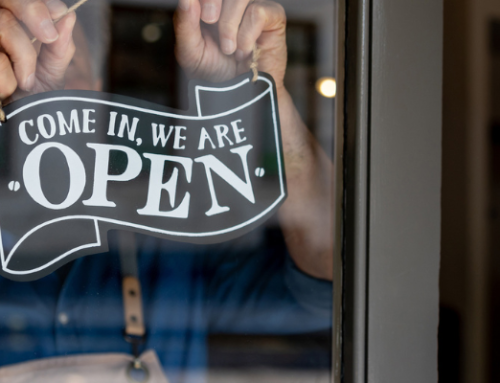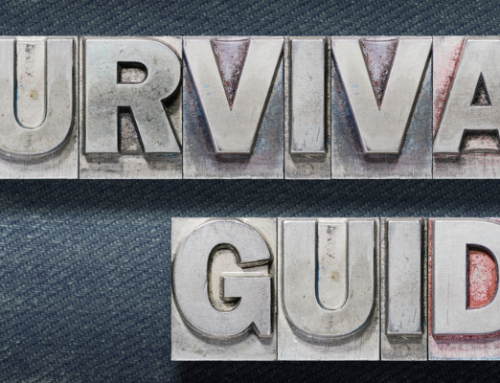You are a small business, and you have your eye on that big government contract. You know it is going to take time and effort to win the bid, but you don’t want to miss out on this opportunity. Small business owners often feel like they have two major obstacles: finding information about programs designed specifically for them and overcoming their own lack of knowledge. This blog post is here to help! We’ll discuss some of the top programs for winning government contracts, including:
- 8(a)
- Small Business Innovation Research (SBIR)
- Small Business Technology Transfer (STTR)
- Small Disadvantaged Businesses (SDB)
- Women-owned Small Businesses (WOSBs)
- HUBZone
- Historically Underutilized Groups (HUGs)
- Service-disabled Veteran-owned Small Businesses (SDVOSB)
The 8(a) Business Development Program
The 8(a) program is a government-wide Small Business Administration (SBA) program that helps small businesses in the United States compete for federal contracts. The Federal government’s goal is to award at least five percent of all federal contracting dollars to small disadvantaged businesses each year. The 8(a) program is a robust nine-year program created to help firms owned and controlled by socially and economically disadvantaged individuals. Being part of the 8(a) program has helped many businesses win more contracts and grow faster than they would have otherwise.
To be eligible, businesses must meet the following criteria:
- Be a small business
- Not have previously participated in the 8(a) program
- Be at least 51 percent owned and controlled by U.S. citizens who are socially and economically disadvantaged
- Have a personal net worth of $750 thousand or less, adjusted gross income of $350 thousand or less, and assets totaling $6 million or less
- Demonstrate good character
- Demonstrate the potential for success such as having been in business for two years
The Small Business Innovation Research (SBIR) Program
The SBIR program is a competitive, merit-based program that encourages domestic small businesses to engage in Federal Research/Research and Development (R/R&D) that has the potential for commercialization. The program encourages small businesses to explore their technological potential and provides an incentive to profit from their products, processes or services by promoting entrepreneurial activity through SBIR awards.
The Small Business Technology Transfer (STTR) Program
Small businesses may participate in a cooperative research and development program known as the Small Business Technology Transfer Program or STTR. This program is designed to encourage qualified small business concerns to engage in Federal Research/Research & Development (R/R&D) that has the potential for commercialization.
The Small Disadvantaged Businesses (SDB) Program
Each year, the Federal Government awards about 10 percent of all federal contract dollars, or roughly $50 billion in contracts, to Small Disadvantaged Businesses, or SDBs. The SDB program is an affirmative action program that helps small businesses owned and controlled by socially and economically disadvantaged individuals compete in the marketplace. The SBA administers the SDB program. To be certified as a SDB, your business must meet certain size standards and the firm must be 51 percent or more owned and controlled by one or more disadvantaged persons. The disadvantaged person or persons must be socially disadvantaged and economically disadvantaged.
Women-owned Small Businesses (WOSB)
The WOSB program provides federal contracting assistance to women-owned small businesses. The Women-Owned Small Business Federal Contract Program is designed to increase the number of federal contracts awarded to qualified women business owners.
To be certified as a WOSB, your business must be:
- At least 51 percent owned and controlled by one or more women who are U.S. citizens; and
- Managing the day-to-day operations of the company; and
- Considered small under the SBA’s size standards for its primary industry.
HUBZone Program
To be certified as a HubZone firm, your business must:
- Be a small business according to SBA size standards
- Be at least 51 percent owned and controlled by U.S. citizens, a Community Development Corporation, an agricultural cooperative, an Alaska Native corporation, a Native Hawaiian organization, or an Indian tribe
- Have its principal office located in a HUBZone
- Have at least 35 percent of its employees living in a HUBZone
The HubZone program is an SBA initiative that helps small businesses in economically distressed areas gain preferential access to federal contracting opportunities. The HUBZone program fuels small business growth in historically underutilized business zones with a goal of awarding at least three percent of federal contract dollars to HUBZone-certified companies each year.
Historically Underutilized Groups (HUG)
Small businesses that are owned and controlled by members of a historically underutilized group, or HUG, may be certified as Small Disadvantaged Businesses (SDBs). To be certified, the business must meet certain size standards and the disadvantaged person or persons must be socially and economically disadvantaged.
The HUG program provides federal contracting assistance to businesses that are owned and controlled by members of a historically underutilized group. The SBA administers the Small and HUG programs.
Service-disabled Veteran-owned Small Business (SDVOSB)
A service-disabled veteran who is an owner must be at least 51 percent of your firm’s ownership to be eligible as a Service Disabled Veteran Owned Small Business, also called SDVOSB. The program provides federal contracting assistance to service disabled veteran owned businesses. The SBA administers the Small and HUG programs. The federal government aims to award at least three percent of all federal contracting dollars to SDVOSBs each year.
As you can see, there are many opportunities for small businesses to get involved in government contracting. The Federal government uses special programs to help small businesses win at least 23 percent of all federal contracting dollars each year. These programs can aid small businesses in earning a reasonable portion of federal contracts, qualifying for unique set-aside and sole-source deals, collaborating with established contractors to win bids, and receiving business mentoring and education to learn how the Federal procurement process works. Small businesses should take advantage of these programs to give them a competitive edge in the government contracting arena.
Have a question related to the programs outlined above? Contact Neena Shukla, CPA, CFE, CGMA, FCPA, CTP, Partner and leader of PBMares’ Government Contracting Team.





